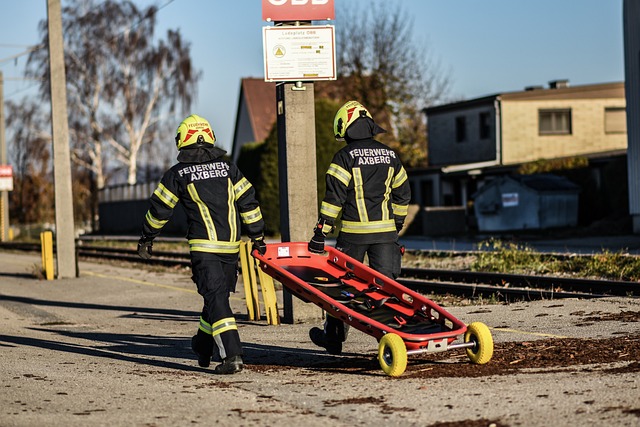Tanker truck accidents, though less frequent than regular car crashes, have severe consequences due to hazardous materials and potential widespread damage. Key causes include driver fatigue, mechanical failures, adverse weather, human error, internal trucking company issues, and breaches of contract related to safety regulations. Navigating insurance claims is complex, requiring skilled legal representation to protect rights and secure compensation for damages like injuries, property loss, and environmental impact. Best practices for risk mitigation involve regular maintenance, stringent safety compliance, driver training, robust communication systems, comprehensive insurance policies, and adherence to industry standards to avoid fiduciary duty breaches.
Tanker truck accidents pose unique challenges in insurance claims, often resulting in complex scenarios due to the high-risk nature of liquid cargo transportation. This article delves into understanding the causes and impact of these incidents, exploring the intricate world of insurance claims processing. We examine strategies to mitigate risks, emphasizing best practices for safe transportation and tailored insurance coverage, offering insights crucial for stakeholders navigating the complexities of tanker truck accident cases.
- Understanding Tanker Truck Accidents: Causes and Impact
- The Complex World of Insurance Claims: A Closer Look at Tanker Incidents
- Mitigating Risks: Best Practices for Safe Transportation and Insurance Coverage
Understanding Tanker Truck Accidents: Causes and Impact

Tanker truck accidents, though less frequent compared to regular car accidents, hold significant weight due to the nature of the cargo they carry and the potential for widespread damage. These large vehicles, designed to transport liquid or gaseous materials over long distances, are complex machines with specialized systems. Understanding the causes behind tanker truck accidents is crucial in mitigating risks and improving safety measures on the roads.
The primary factors contributing to these incidents often include driver fatigue, mechanical failures, adverse weather conditions, and human error. Driver fatigue, a prevalent issue in trucking industries, can lead to reduced alertness and poor decision-making, especially during long hours or night drives. Mechanical problems with tankers, such as faulty brakes or leaky pipelines, can cause loss of control and result in devastating collisions. Extreme weather events like heavy rain, snow, or fog also pose significant challenges, reducing visibility and road traction. Moreover, partnership disagreements within trucking companies and caregiver abuse (especially in situations where drivers are under intense pressure to meet delivery deadlines) can indirectly contribute to reckless driving behaviors, adding another layer of complexity to the prevention and management of tanker truck accidents and their ensuing car accident injuries.
The Complex World of Insurance Claims: A Closer Look at Tanker Incidents

In the event of a tanker truck accident, navigating the complex world of insurance claims becomes an intricate task. These incidents, often involving large-scale damage and potential hazards, necessitate a thorough understanding of liability protocols and coverage specifics. Each tanker truck accident case presents unique challenges due to varying factors such as cargo types, vehicle conditions, and the specific circumstances surrounding the incident. This complexity can significantly impact the claims process, requiring meticulous documentation and expert analysis.
When dealing with these cases, a breach of contract may arise from issues like non-compliance with safety regulations or improper handling of hazardous materials. A skilled car accident lawyer specializing in tanker truck accidents is often crucial in navigating these legal intricacies. Their expertise ensures that all necessary steps are taken to protect the rights of the affected parties and secure appropriate compensation for damages, including potential injuries, property loss, and environmental impact. Engaging a qualified accident attorney is essential to ensure fair resolution in such complex cases.
Mitigating Risks: Best Practices for Safe Transportation and Insurance Coverage

In an effort to mitigate risks associated with tanker truck accidents, several best practices can ensure safer transportation and more comprehensive insurance coverage. These include stringent maintenance checks for vehicles to prevent mechanical failures and ensure compliance with safety regulations. Regular training programs for drivers on defensive driving techniques and hazard recognition significantly reduce the likelihood of accidents. Moreover, implementing robust communication systems allows real-time tracking of tanker trucks, enabling quicker response times in case of emergencies.
Beyond these measures, insurance providers should offer policies that cover not just physical damage but also potential wrongful death claims arising from accidents. Given the high cost of property damage claims related to tanker truck incidents, adequate liability coverage is essential for operators. Furthermore, understanding and adhering to industry standards can help prevent breaches of fiduciary duty, ensuring that safety is never compromised for financial gains.
Tanker truck accidents pose significant challenges in insurance claims due to their complex nature and potential for severe consequences. Understanding the causes, impacts, and best practices for safe transportation is crucial in mitigating risks and ensuring comprehensive insurance coverage. By navigating the intricate world of insurance claims, we can better prepare for these incidents and support all involved parties. Remember that proactive measures and knowledge are key to minimizing complexities and enhancing overall safety in the transportation sector.






